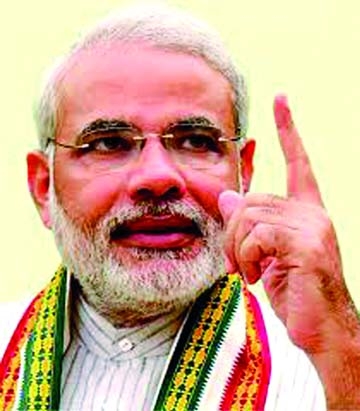
The Economist :WHO does not marvel at the prospect of India going to the polls? Starting on April 7th, illiterate villagers and destitute slum-dwellers will have an equal say alongside Mumbai’s millionaires in picking their government. Almost 815m citizens are eligible to cast their ballots in nine phases of voting over five weeks-the largest collective democratic act in history.But who does not also deplore the fecklessness and venality of India’s politicians? The country is teeming with problems, but a decade under a coalition led by the Congress party has left it rudderless. Growth has fallen by half, to about 5%-too low to provide work for the millions of young Indians joining the job market each year. Reforms go undone, roads and electricity remain unavailable, children are left uneducated. Meanwhile politicians and officials are reckoned to have taken bribes worth between $4 billion and $12 billion during Congress’s tenure. The business of politics, Indians conclude, is corruption.No wonder that the overwhelming favourite to become India’s next prime minister is the Bharatiya Janata Party’s Narendra Modi. He could not be more different from Rahul Gandhi, his Congress party rival. The great-grandson of Jawaharlal Nehru, India’s first premier, Gandhi would ascend to office as if by divine right. Modi is a former teaseller propelled to the top by sheer ability. Gandhi seems not to know his own mind-even whether he wants power. Modi’s performance as chief minister of Gujarat shows that he is set on economic development and can make it happen. Gandhi’s coalition is tainted by corruption. By comparison Modi is clean.So there is much to admire. Despite that, this newspaper cannot bring itself to back Modi for India’s highest office.

